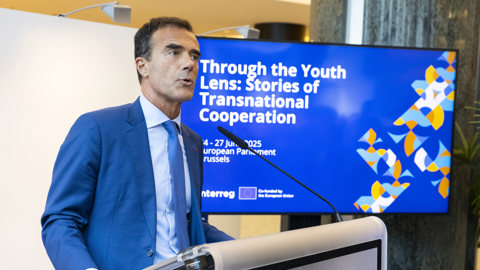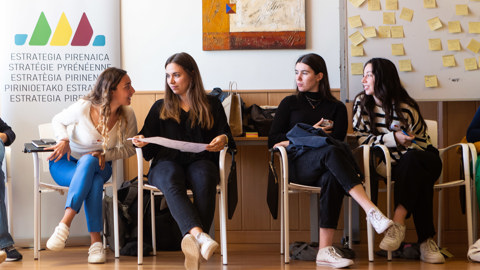Find Interreg programmes
Discover Interreg programmes through the interactive map below. Filter by country, thematic objectives or type of programme to find the information you need. Data is provided by keep.eu.Programmes
Select Programme type
Legend
Need more information about Interreg programmes?
Looking for deeper insights? Learn more about the thematic objectives driving Interreg programmes, or explore the different types of programmes available, to find the one that best suits your needs.
Explore news & stories
Dive into more relevant stories that made a difference in the area.
MEP Sandro Gozi hosts youth exhibition on Transnational Cooperation in the European Parliament
What does transnational cooperation mean for Europe’s future, and why must youth lead the way? In an exclusive interview, MEP Sandro Gozi reflects on the 'Through the Youth Lens' exhibition at the European Parliament and shares why initiatives like Interreg are essential for tackling today’s shared challenges. Dive into the full story to explore his vision and discover the powerful message behind the exhibition.
09 July 2025
Creating opportunities for young people in the Pyrenees
The project Trampoline II promotes cross-border mobility of young people between Spain, France and Andorra.
09 July 2025
The Atlantic Area programme approves 24 new projects with €55 million investment
The Interreg Atlantic Area programme has approved funding for 24 new cooperation projects during its latest Monitoring Committee meeting held in Galway, Ireland. These projects were selected under the programme's Third Call for proposals and represent a total investment of €55 million.
08 July 2025
A slice of cooperation: Four programmes launch the Interreg Bake Off Challenge
How do you celebrate 35 years of European cooperation? With a cake, of course. Or better yet, with a cake that tells a story.
07 July 2025